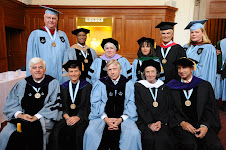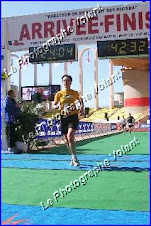My op-ed, rejected by the Washington Post....
* * * *
The arrival of Mary Shapiro at the helm of the Securities and Exchange Commission is good news for the embattled agency. Ms. Shapiro, a former Commissioner, has already announced changes she will make to existing practices at the agency, including the process for obtaining approval for a formal order of investigation and the approval process for levying financial penalties. Staff attorneys in the Enforcement Division are already feeling re-energized, I am sure. A renewed focus on the work of protecting investors in the US financial markets, the mission of the SEC, is welcome.
But the changes that Chairman Shapiro is making, and will continue to make, will only change the process of Enforcement at the Commission. What also needs attention from the Chairman, and from the new head of the Enforcement Division, is on the staff that is doing the work of the Division. I believe that one of the continuing weaknesses in the Enforcement Division is that there are not enough of the right people involved in fraud investigations.
Without personal knowledge of the investigation of Bernard Madoff, I would hazard a guess that the attorney investigating Mr. Madoff, while perhaps professionally motivated to bring a case against one of the biggest names in the securities industry, had neither the accounting skills nor the investing experience to be able to diagnose exactly what Madoff was doing in a way that would have allowed the investigation to go forward. (Ignoring the fact that that evidence was presented to the agency by Mr. Markopolous regarding the fraud.)
I was an attorney in the Commission’s Enforcement Division in Washington, DC right after I graduated from law school. I was a highly motivated individual who had a passionate interest in the stock market and was eager to play an important role in the agency’s mission. I was assigned to a branch where I was working with equally motivated attorneys. My group worked long hours, aggressively pursued cases, and congratulated ourselves when we were successful in bringing down yet another fraud in the marketplace. I left the agency proud of my work there.
I left the commission to attend business school, after which I went to work as a consultant in the financial services industry. Once I started working at my clients, I realized how little I knew as a young attorney about the inner workings of the securities industry. I had been educated in the securities laws, and the commission made excellent continuing education classes available, but I think my own lack of specific knowledge of the industry I was investigating was a hindrance in my investigations at the time. I certainly had the resources, and utilized them, to educate myself on repos, junk bonds, parking securities, and proxy fights – but that was valuable time lost in the investigation. When I think about the other experienced attorneys I worked with in the Commission, many of whom have gone on to work in the industry they formerly regulated, I wonder that many of them also haven’t had the same thoughts upon leaving the Commission. No matter how good an attorney you may be, if you have never sat on a trading floor or processed a trade ticket in the back office, you don’t really know what goes on in that world, or know why people do what they do. I wished I’d had some of that knowledge when I was doing my investigations.
Knowing what I know now about the financial industry from the inside, I think our best independent government agency could be better. The SEC has always prided itself on the quality of the lawyers, accountants and economists that work there, and they are indeed among the best and the brightest. But I think the SEC could be a better regulator if it hired people from inside the industry to join in analyzing potential fraud schemes, to assist in unlocking market jargon, and anticipate new frauds. It’s easy to say, Those types of people will never come work for the government; you can’t pay them enough. But that’s too easy. My guess is that you could create one or two year positions in the division with the specific intent of filling them with public-service minded folks who would welcome the opportunity to come work for the government for a specific time period. When Joseph P. Kennedy, Sr. was named the first SEC Chairman, President Franklin D. Roosevelt knew exactly what he was doing, asking one of the then most active speculators in the financial world to lead the new regulatory body. We need to continue to do the same thing, bring in industry players to help regulate the world they know best. It was a good idea then; it’s a good idea now.
Monday, February 23, 2009
Subscribe to:
Post Comments (Atom)





















































































































































































No comments:
Post a Comment